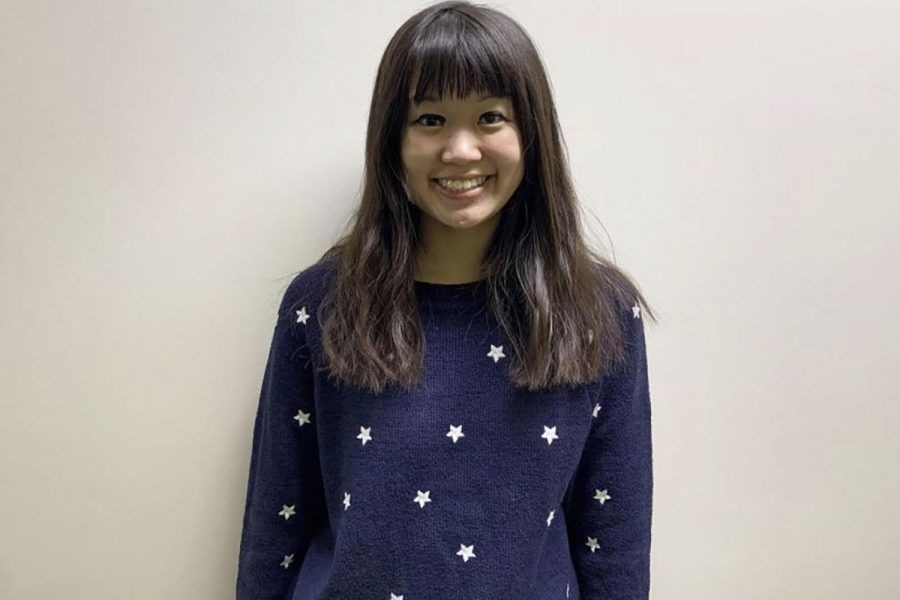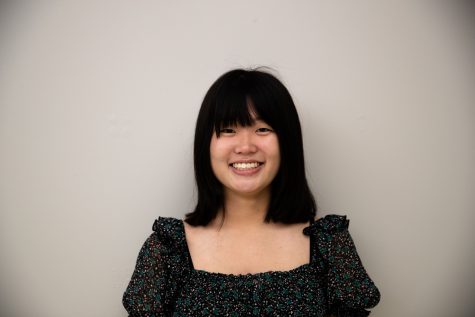Opinion | Dealing with the reality of being Asian American
Asian Americans have always dealt with anti-Asian discrimination and ideals. Now, we’re also fearing for our lives.
March 18, 2021
After the hate crime that took place in Atlanta on Tuesday night, my friends reached out to me the following morning asking me questions like “how are you feeling?” and “are you OK?”
At the time, I was overwhelmed with so much emotion and frustration that I didn’t know how to respond. All I could say was, “I feel like I’m walking around with a target on my back.” But underneath that statement there’s so much more.
Asian Americans have always dealt with discrimination, yet it’s something that’s been brushed underneath the rug. Specifically, Asian American women have been exploited in Hollywood, and actresses are often fetishized and sexualized.
People didn’t seem to realize that these stereotypes have real consequences for Asian American women until now. I’m all too familiar with phrases like “yellow fever” and descriptions like “exotic.”
We have always been dehumanized, and the COVID-19 pandemic exacerbated this issue when it was referred to as the “Kung flu” and the “China virus.”
The Stop AAPI Hate Organization reported that around 3,800 anti-Asian racist incidents happened between March 19, 2020 to Feb. 28 this year, and 68 percent of the incidents happened to women.
All the signs were there. We shouldn’t be surprised that this horrific event took place, but we can’t forget that we’re the ones that let it come to this.
Our calls to stop the hateful rhetoric were ignored last year by our country’s leader at the time. The rhetoric and scapegoating was tolerated for too long. Because of this tolerance, it was allowed to escalate.
Only 4.8 percent of the UI undergraduate student population is Asian American, so it’s difficult for someone like me not to stand out in the crowd. But because of that, it makes me feel like an easy target.
I’ve taken pride in my identity as an Asian American woman who’s trying to break glass barriers. I’ve always known how society views me because of stereotypes that have been assigned to my race. Now, I’m terrified that who I am could possibly be putting my life in danger.
When I first heard what happened, I was numb. I couldn’t talk about it because I didn’t even want to think about it. But the only thought that was stuck going through my mind as I lay in bed was “that could’ve been me.”
We’ve been screaming for years, but until now we felt invisible. I will never be able to understand why it took eight lives — six of whom were Asian American women — for people to finally hear us. It never should’ve come to tragedy in order to realize we have a problem.
After reflecting and processing, my answer now to the questions I have been asked is this: I’m relieved that we are finally starting to have a conversation. I’m grateful for the people and organizations who reached out like the University of Iowa Women’s Resource and Action Center that want to provide support and know how they can do better to support the community.
However, I’m hurt and heartbroken that it took eight lives to do so. It took eight lives for people to realize that our dehumanization is a problem. We are fighting for humanity, and it’s a battle that shouldn’t need to be fought in the first place.
Institutions like the UI released a statement on March 17 that said it stands in solidarity with Asian American students, international students from Asia, Pacific Islanders, and the Pan Asian community. My social media has been filled with the hashtags and posts of “stop Asian hate.”
We needed solidarity from the community sooner. We needed it when the elderly were being shoved to the ground and when we were being spat at in public. We needed to recognize that the anti-Asian ideas already present have harmed the AAPI community, and that COVID-19 only added fuel to the fire.
The damage is done, and the question right now is how we move forward. We can’t just ask ourselves how we can prevent this from happening again. We need to ask why we didn’t recognize this problem sooner and why we allowed it to happen in the first place.
Columns reflect the opinions of the authors and are not necessarily those of the Editorial Board, The Daily Iowan, or other organizations in which the author may be involved.















